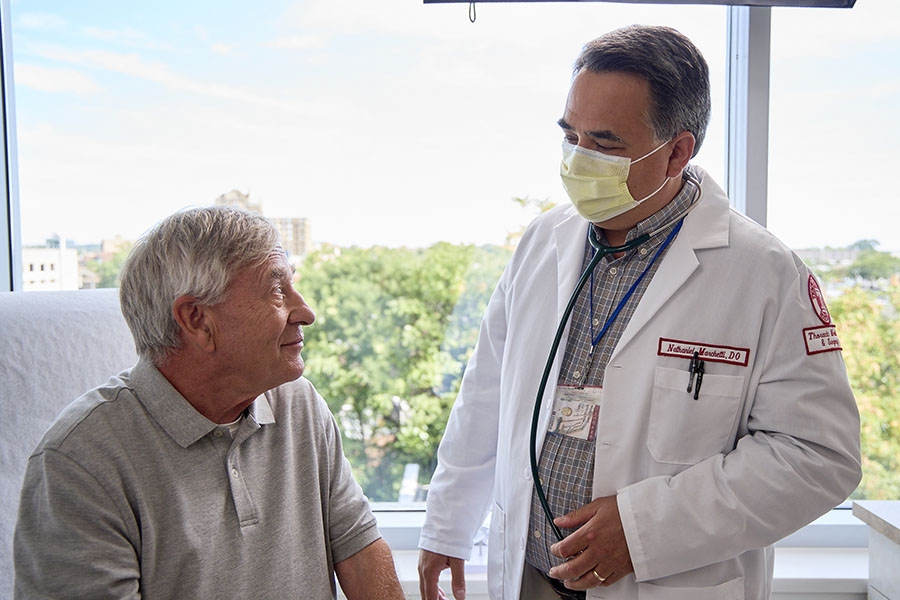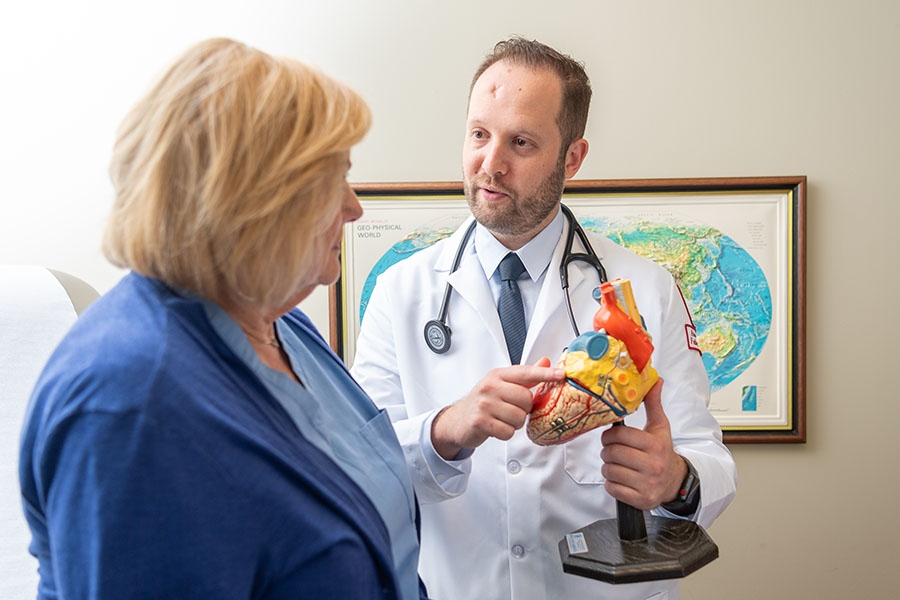UNOS (United Network for Organ Sharing), the organization that oversees all transplant programs in the country, provides transplant centers with precise listing criteria that all patients must meet in order to be listed at a specific level of urgency for transplant regardless of institution.
However, each program decides which criteria they would like to use for risk assessing a patient to be accepted for listing at that specific institution. Some programs are extremely conservative and have a strict cutoff for age, medical history and social support that will make a patient too high risk for that program.
At Temple, we evaluate every patient case by case. We're experienced with transplanting and managing higher-risk patients and achieving great outcomes. The expanded criteria allows us to evaluate more patients who were turned down due to being considered too high risk by other centers, and to offer them a second chance.
A transplant evaluation may be an option at Temple if you have:
- Advanced heart failure with conditions and symptoms that haven't improved with lifestyle changes, or optimized medications, biventricular pacing, and management of the underlying cause of heart failure.
- Are 74 years old and younger
- Have a body mass index (BMI) up to 38
- Have abstained from alcohol, smoking or marijuana for a time period based on level of dependence
- Have an elevated panel-reactive antibody (PRA)
- Have a history of mantle field radiation — most commonly applied radiation treatment from the early 1970s to the late 1980s
- Have had cancer in the last 5 years
- Are HIV positive
- Have pulmonary hypertension
- Have had multiple sternotomies — an incision made through the flat bone in the middle of the chest during open-heart surgery

